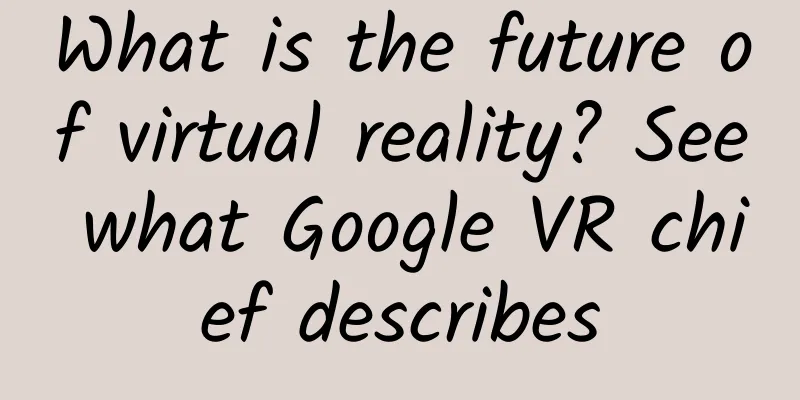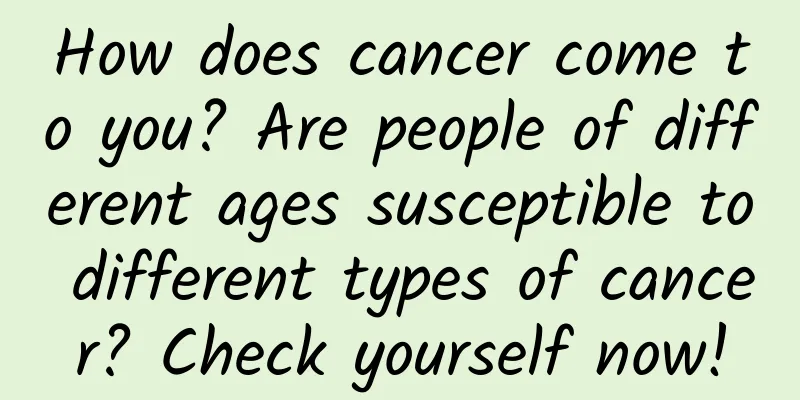What is the future of virtual reality? See what Google VR chief describes

|
Google Cardboard is one of the cheapest virtual reality (VR) devices currently available. From the perspective of cost and ease of use, Cardboard is very convenient, but it lacks processing power, the interactive experience is also insufficient, and it can't even be worn fixedly on the head like its competitors, but this situation may soon change. Clay Bavor, head of the VR department at Google , recently accepted an exclusive interview with the American magazine Popular Science . Although he remained tight-lipped about the mysterious integrated standalone VR device, he also revealed what aspects Google is focusing on when developing the next generation of VR products. It is certain that Google is seriously developing VR. Popular Science: Currently, the main application scenario of VR is games, but Google is not a game company. Why does it invest in VR? Clay Bavor: Google has always been about information. When Google was founded, its mission was to organize the world's information and make it accessible to everyone . When we think of information, we think of text, whether it is handwritten or printed. In fact, images are also information. Compared with text descriptions, pictures or videos can give people a better understanding of what a tiger looks like. In fact, one of the more popular types of videos on YouTube is tutorial videos. These videos guide people to complete many complex tasks: modifying a toilet, repairing an engine spark plug, etc. But I think that in many cases, experience is the richest form of information. There is a big difference between reading a description of walking through the streets of Paris or watching a video of sightseeing in Paris and actually visiting Paris. So there is a reason why people like to experience things in person. I think VR allows people to experience everything more directly and get information with a sense of reality. So Google's investment in VR research and development is very consistent with what Google has been doing, which is to process information and use technology to make people more informed. Popular Science: You've already launched your own VR device, so what direction will Google Cardboard take? Clay Bavor: Google Cardboard taught us a lot, for example, we realized the importance of "mobility". Mobile VR allows people to experience VR without having to go to a specific place, but can carry VR equipment with them and experience it at any time. I think the usability of VR equipment is also very important. It should be easy for people to use and will not make people suffer from technology phobia. At present, the penetration rate of smartphones is very high. VR can turn smartphones into something magical, so that it is not limited to making calls, browsing the web, and sending and receiving emails, but becomes a cinema in your pocket, or a portal that allows you to travel through time. Google Cardboard has been successful in many aspects, namely mobility, comfort, ease of use and low cost, and we will continue to maintain these advantages in the next generation of products. Of course, Google Cardboard uses ordinary smartphones, not phones specially developed for VR, and Cardboard is also made of cardboard. If the design of the phone and the development of software can be more targeted, then Cardboard can become a VR product with better user experience and better quality, without losing the advantages that Cardboard originally has. Popular Science: You just emphasized mobility, comfort, and ease of use. What else do you focus on? Clay Bavor: One thing that limits Cardboard right now is that it only has one button. VR allows you to have a deeply immersive experience, and you certainly want to be able to interact with VR more fully. I've been thinking about how to develop a VR product that is easy to use and comfortable to use without compromising the experience. Although it's simple to operate, we can do a lot of things with it. This is something we've been trying to balance. Popular Science: How will VR fit in with Android and the company's larger goals? Clay Bavor: The most exciting thing about Android is that there are many different companies, developers, and manufacturers around the world using Android in different ways. Just like we did with Android, our vision for Cardboard is to create a complete VR ecosystem. Popular Science: Will Google's investment in augmented reality (AR) startup Magic Leap affect Google's VR research and development? Clay Bavor: Google only invested in Magic Leap, so Magic Leap is an independent company. We think they are a great team and a great company. Google's research and development is focused on VR, and they are particularly focused on using the experience of developing Cardboard to develop mobile VR. The two are not in conflict. It's still what I said before: mobile, comfortable, accessible and low-cost. Popular Science: So, we'll never have the chance to see Google launch an AR product or service? Clay Bavor: Google is involved in a lot of areas, and "forever" is too long. Right now we are mainly focused on VR, which is reflected in the various efforts Google has made around Cardboard. We launched VR videos on YouTube and developed a 360-degree movie app Spotlight Stories. These are all related to VR. We also launched Jump with GoPro, which is a lens set for shooting high-quality VR videos. We also released a VR educational software Expeditions, with this app, teachers can move field trips into the classroom. You see, this is what we are focused on. Popular Science: Although VR is still in its early stages, the experience of VR games feels great. So what are the killer applications in the non-gaming VR field? Clay Bavor: I think there won't be "one" killer VR application in the future, but many. Just like many killer applications for computers and smartphones, VR will become a common computer device that can do many things, from interactive entertainment, games to mobile office. Imagine that you put on VR glasses and a huge display will appear in front of you, and you will work in the beautiful scenery of Hawaii. In the short term, I think we're already seeing some powerful uses for VR. What I find most appealing is that VR lets you experience what it's like to visit remote, off-the-beaten-path places without actually having to go there. Everyone wants to play with their idols; everyone wants to sit courtside to watch their favorite team; everyone has a place they want to go, whether it's home or somewhere on the planet, but can't because it's too far away or too expensive to go... We're about to have the technology - cameras and microphones and all the necessary equipment - to capture specific environments and experiences, then digitize them, and recreate them in VR so that more people can participate. Popular Science: So even if I never get to see Prince perform live, I can make up for it with VR. Clay Bavor: Well, it's a sad thing, but you really hit the nail on the head. If we had recorded a VR video of Prince's performance a few years ago, we could have given you the experience of being there. We've missed the opportunity, but I hope we won't miss out on so many other musicians, beautiful places, historical events, etc. Popular Science: How important is it for Google to create a mobile VR that isn't tethered to a computing source? Clay Bavor: Our first priority is to create a great product and give users a great experience. In this process, many details must be grasped just right, from comfort to performance, from low latency and high frame rate to the device itself. It should be a device you want to buy, want to use, and want to carry with you. I can't reveal too many details, but I think we are building a great VR experience. We hope to launch a high-quality, high-performance product. Just as Google wants to deliver the world's information to everyone, Google also wants to bring VR to everyone. Popular Science: What have you learned since becoming the head of VR at Google? Clay Bavor: What we learned is that we can actually get a lot of inspiration from the real world to develop virtual reality technology. How do you handle things in the real world? How do you operate in virtual reality? In the real world, to open a door, we just need to twist the door handle, and the "door handle" conveys the meaning of "opening the door". In the virtual reality world, some objects are used to indicate the operation, and these objects are given certain functions. Our brains are good at interaction and operation in the real world. By borrowing these habits into virtual reality, users can easily understand how to use these designs. For example, if I hear a sound coming from the right, then we subconsciously turn to the right. My brain can analyze the object on the right based on the change and volume of the sound. Similarly, in the VR world, we can use this principle to guide the user's movement in the scene. Now many user interfaces and analogy designs that transplant real-world behaviors to the VR world are doing well. But at the same time, VR still has many limitations, such as no touch. As a winner of Toutiao's Qingyun Plan and Baijiahao's Bai+ Plan, the 2019 Baidu Digital Author of the Year, the Baijiahao's Most Popular Author in the Technology Field, the 2019 Sogou Technology and Culture Author, and the 2021 Baijiahao Quarterly Influential Creator, he has won many awards, including the 2013 Sohu Best Industry Media Person, the 2015 China New Media Entrepreneurship Competition Beijing Third Place, the 2015 Guangmang Experience Award, the 2015 China New Media Entrepreneurship Competition Finals Third Place, and the 2018 Baidu Dynamic Annual Powerful Celebrity. |
<<: iQIYI's Duan Youqiao: Living room and bedroom are the most important markets for VR
Recommend
APP promotion: Detailed explanation of basic ASO optimization in the six major Android application markets!
When I was just getting started, I read various a...
All 51 impoverished counties in Hunan Province have been lifted out of poverty! The number of poor people has been reduced by 4.563 million in 6 years
At a press conference held by the Hunan Provincia...
Six channels for short video distribution and promotion
1 According to QuestMobile data, in 2020, WeChat’...
A new piece of strange knowledge has been discovered: Why can’t female seahorses give birth to babies?
"Its head is like a horse, its body is like ...
Can eating less sugar reduce the risk of cardiovascular disease? Research shows: It depends on what kind of sugar you eat
Written by: Nan An It’s common to hear that “eati...
This article will help you understand the video recommendation rules of Bilibili!
Retail e-commerce recommends your favorite daily ...
Microsoft pushes Windows 10 Mobile update to non-Insider testers
On Friday, Microsoft pushed Windows 10 Mobile Ins...
Dongyang SEO training: How to avoid website keyword optimization errors?
With the development of the Internet, more and mo...
How to efficiently learn and master new technologies
[[149369]] Recently, I have learned and practiced...
Yixin 3.0: Another desperate battle for operators
Since Tencent launched WeChat Phonebook, "fr...
Xie Fayue's "Chinese Medicine Gynecology" 20 common gynecological diseases, you will understand them in one study
Training course video lecture content introductio...
How to place advertisements on iQiyi?
1. iQIYI Advertising 1. What is iQiyi advertising...
How much does it cost to customize the Yibin used car mini program? What is the price for customizing the Yibin used car mini program?
The main factors affecting the price of mini prog...
Chengdu tea tasting agent night view private contact information released [worth collecting]
Chengdu Tea Tasting Broker: Senior broker Night V...









